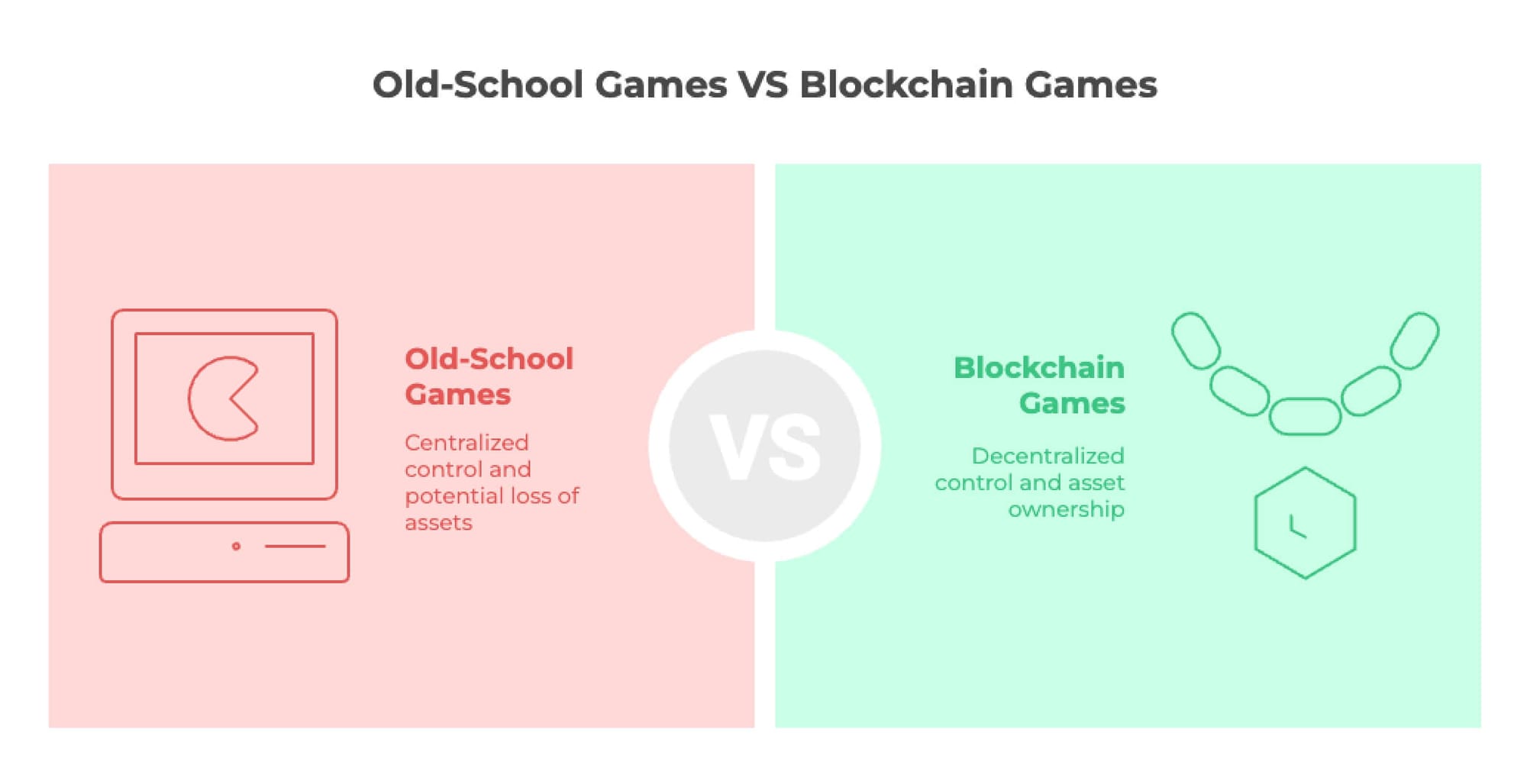Imagine this: all those cool items and character skins you get in games? What if they actually belonged to you? Like, really yours, and you could even trade them for real cash! Sounds awesome, right? That's the magic blockchain gaming is bringing to the table. Let's dive in and uncover the secrets!
Blockchain Gaming: Not Just the Game Company's Playground Anymore
Simply put, blockchain games weave "blockchain technology" right into the gameplay.
- Old-School Games: You know how you "buy" skins or items? You're mostly just "renting" them. All that data sits on the game company's central servers. If the game shuts down or your account gets banned, poof! Your stuff is gone.
- Blockchain Games: They're different! They use something called a "decentralized ledger" (that's the blockchain!) to manage your in-game goodies, and sometimes even the game rules themselves. This means the game company doesn't have sole control over everything anymore.
This shift is a huge deal, especially when it comes to who really owns in-game assets and how game economies work.

NFTs: Your Game's "Digital Property Deeds"
NFTs (Non-Fungible Tokens) are the secret sauce in blockchain gaming.
- One-of-a-Kind: Unlike Bitcoin, where one coin is the same as another, each NFT is totally unique – think of a limited-edition trading card or a piece of digital art.
- Your Exclusive Gear: In a game, an NFT could be your special character skin, a powerful weapon, a plot of virtual land, or even a super-rare character.
- Real Ownership: Here’s the kicker: when you get an NFT-based game item, you truly own it! This ownership is securely recorded on the blockchain, and nobody can change it. It’s like having a "digital deed" for that item.
- In traditional games, items are just "licensed" to you. Game gone? Items gone.
- NFT items, in theory, can exist even if the game itself disappears. Your precious NFT could still be around, maybe even gain value!
This feeling of "true ownership" creates a much deeper connection with your in-game stuff. They stop being just pixels and become valuable "property" you genuinely care about, maybe like your real-world collectibles.

Play-to-Earn (P2E): Gaming as a "Side Hustle"?
A lot of blockchain games feature an awesome model called "Play-to-Earn" (P2E).
- Play Games, Earn Real Value: By battling monsters, completing quests, winning matches, or even breeding digital pets, players can earn cryptocurrencies or NFTs as rewards. And these rewards have real market value!
- From Spending to Earning: P2E could potentially turn gaming from just a fun expense into an activity that actually brings in income.
Of course, P2E had some growing pains. Some early games focused too much on the "earn" part and weren't that fun to play, feeling more like a "grind."But the industry is learning and evolving! We're now seeing models like "Play-and-Own" (P&O), which emphasize the fun and value of owning digital assets themselves, not just the earning aspect. The goal is to strike that perfect balance between fun and financial reward. We might see more models based on skill and meaningful contributions to the game (some call this "GameFi 2.0" ).
Welcome to the Web3 Gaming Era
All these cool new things—blockchain gaming, NFTs, P2E—are part of a bigger movement called Web3 Gaming.
- What's Web3? Think of it as the next generation of the internet. Key features include:
- Decentralization: Power isn't concentrated in the hands of a few big companies.
- User Ownership: You control your data and digital assets.
- Community-Driven: Platforms are often governed by their communities.
- The Goal of Web3 Gaming: To empower players! It aims to give you more control over your digital identity, your game assets, and even a say in how the games you play evolve, perhaps through something called a DAO (Decentralized Autonomous Organization).
Blockchain Gaming vs. Traditional Gaming: A Quick Look
| Feature | Blockchain Gaming | Traditional Gaming |
|---|---|---|
| Asset Ownership | Players truly own assets via NFTs. | Players only get a 'license' to use items; company owns all. |
| Asset Trading | Open economy; assets can be freely traded on external markets, maybe even across games. | Closed economy; assets locked within one game, hard to trade. |
| Economic Models | Play-to-Earn (P2E), Play-and-Own (P&O), other new models. | Pay-to-play, subscriptions, free-to-play with in-app purchases. |
| Game Governance | Potential for community governance via DAOs. | Centralized control by developers and publishers. |
What are the Perks for Us Players?
- Truly Own Your Stuff: Those in-game items? They're your NFTs, actual digital property!
- Earn While You Play: Get a chance to make real-world money from your gaming activities and assets.
- Potentially More Secure (in theory): Decentralized records are harder to tamper with (though smart contract vulnerabilities are still a thing to watch out for!).
- Use Items Across Games (the dream!): Your NFT from one game might be usable in others in the future – this is still evolving.
- Have Your Say: Opportunities to participate in game governance and development, helping shape the game's future.

Hopefully, this guide gives you a clearer and more exciting picture of what blockchain gaming is all about! It's a fast-moving space, and there are definitely more cool developments waiting for us to explore. Happy gaming!
